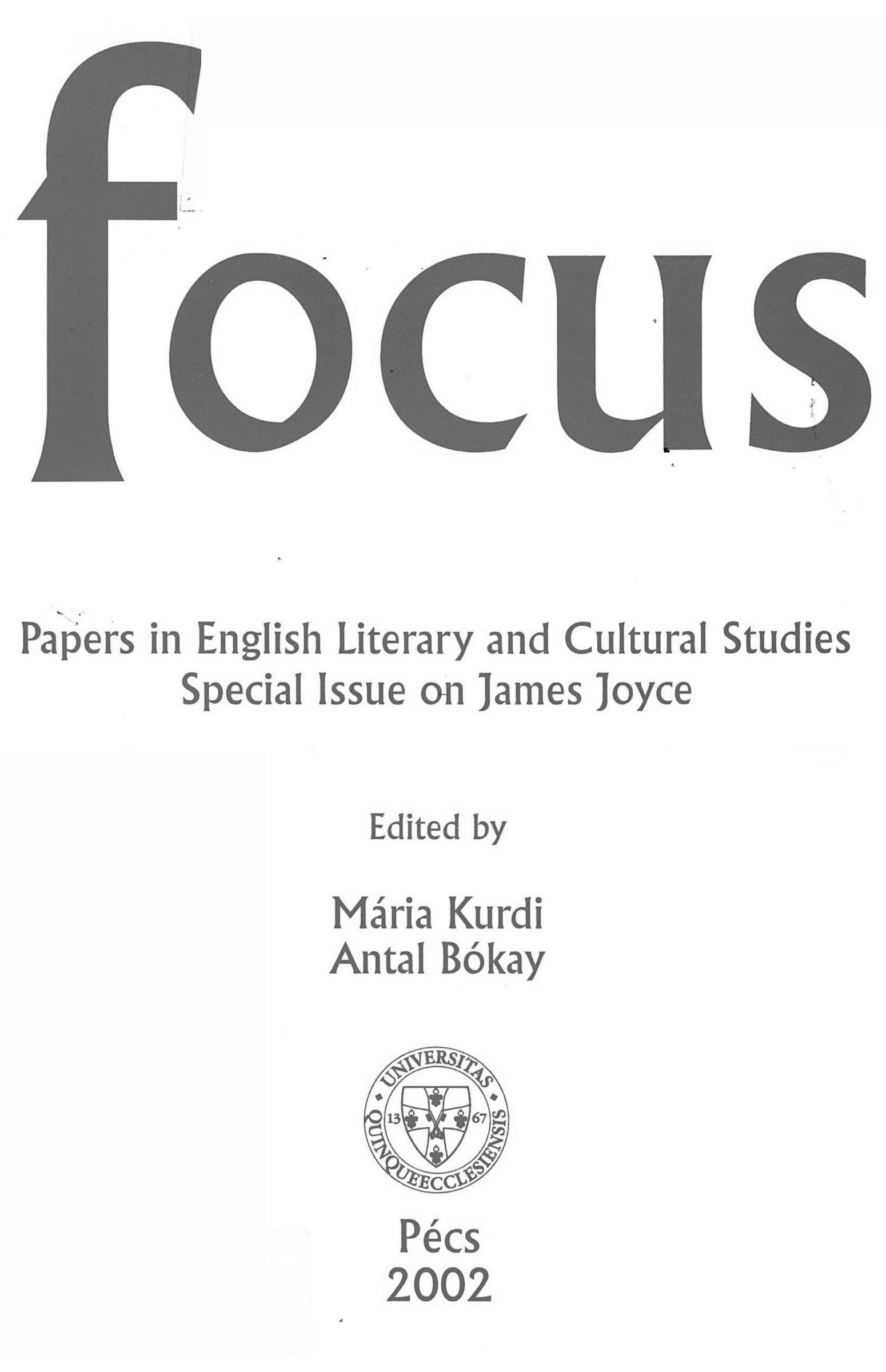Ulysses Rearranged for the Stage: Dermot Bolger’s A Dublin Bloom
Abstract
Undertaking an adaptation of any of James Joyce’s works is, indeed, an extremely challenging enterprise, partly because ofthe dangers involved in tampering with a piece of literature whose status resembles that of a cultic text and whose writer’s standing is so exceptionally high in world literature. All this entails very high expectations, and suspicions whether it is possible for the new creation to be on a par with the original. The still often uncertain status of adaptations in the eyes of critics and audiences poses an additional problem. It is a challenge, though, which for many has proved too irresistible. A book titled Missed Understandings (1988) by Jose Lanterns undertakes the study of numerous stage adaptations of Joycean works. Alongside mentioning a great number of unpublished adaptations, the plays discussed in more detail are Hugh Leonard’s Stephen D (1964) (adapted from A Portrait and Stephen Hero) and Dublin 1 (based on short stories from Dubliners)', Mary Manning’s The Voice ofShem (1957); Desmond O’Sullivan’s Finnegans Wake adaptation with an identical title; two adaptations of the “Circe” episode, Ulysses in Nighttown by Marjorie Barkentin and Padraic Colum (1959), and Circe by Paul O’Hanrahan (1983); Joseph Carroll’s adaptation of the “Cyclops” episode, Mr Bloom and the Cyclops (1982), and also plays based on several episodes or the whole of Ulysses like Bloomsday by Allen McCllelland (1958), Joycemen, a one man show by Eamon Morrissey (1980), and Ulysses by Stephen Rumbellow (produced in 1981). There are two more adaptations of Ulysses not discussed in Lanterns, Anthony Burgess’s musical play, Blooms ofDublin (1986), and the more recent A Dublin Bloom (1994) by Dermot Bolger.
Downloads
Published
How to Cite
Issue
Section
License

This work is licensed under a Creative Commons Attribution-NonCommercial-NoDerivatives 4.0 International License.
FOCUS: Papers in English Literary and Cultural Studies follows the principles laid down by Creative Commons, which provides guarantees for the Author’s copyright while also ensuring that intellectual properties are made available for the wider public in a digital form. All papers submitted to the journal apply the following licence conditions (indicated on the journal’s website as well as in individual publications):
“© This work is licensed under a Creative Commons Attribution-NonCommercial-NoDerivatives 4.0 International License.”
You are free to:
- Share, copy and redistribute the material included in the journal in any medium or format under the following terms:
- Attribution — You must give appropriate credit to the Author, and indicate the original place of publication [FOCUS: Papers in English Literary and Cultural Studies, Issue nr., page numbers.].
- NonCommercial — You may not use the material for commercial purposes.
- NoDerivatives — You are not allowed to remix, transform, or build upon the material.
- The above conditions must always be indicated if the journal material is distributed in any form.
- The above conditions must always be met, unless a written permission signed by the Author and the Editor-in-Chief states otherwise.

